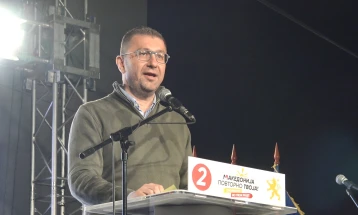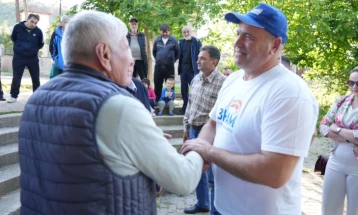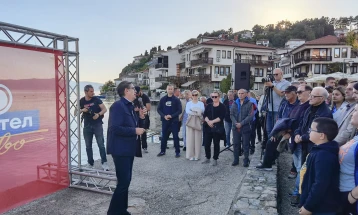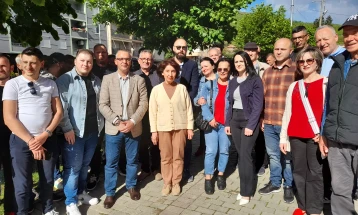World Bank: Better paid jobs instead of price freeze
- Freezing of food prices is a short-term measure, not a structural one that can be used in the long run. With it, you are only temporarily and artificially sustaining a price level that doesn’t reflect the real product costs and the real trends in the economy, say World Bank experts.
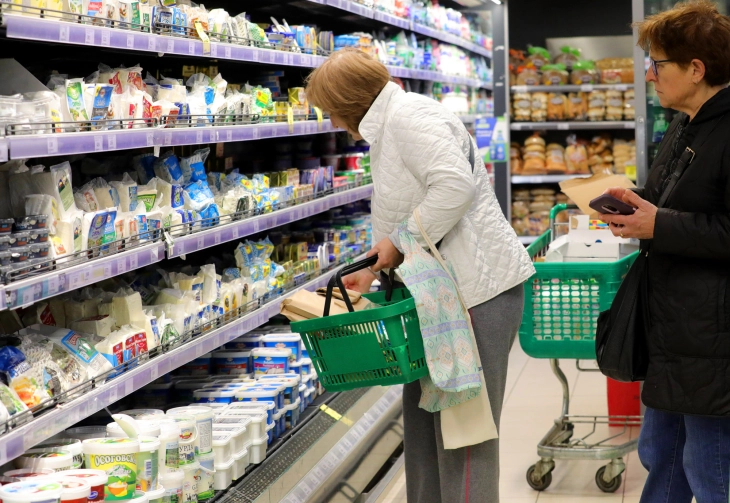
Skopje, 11 April 2024 (MIA) – Freezing of food prices is a short-term measure, not a structural one that can be used in the long run. With it, you are only temporarily and artificially sustaining a price level that doesn’t reflect the real product costs and the real trends in the economy, say World Bank experts.
According to them, better paid jobs should be secured instead of price freeze, as well as retail competitiveness to be increased and food to be produced at home more than what it is being imported.
“Despite this, price freeze helped maintain the standards of living of the population in North Macedonia, especially amid spiking prices. However, as a measure it cannot be used in the long run. In that case, you should implement some structural measures that could improve the standard. One of those is to secure more quality and better paid jobs,” economist Joana Madjoska said answering reporters’ questions after the presentation of the Western Balkans Regular Economic Report.
Sanja Madzarevic-Sujster, senior economist, said all countries in the region and European countries had been introducing certain price controls in 2022 and early 2023 and had awarded electricity subsidies, which had helped in the short run.
“But, it costs money, especially when you’re securing universal subsidies. Your country had allocated a lot of money to maintain low electricity price, the lowest in the region, which has affected the budget. We see the deficit is much higher than in other countries in the Western Balkans. A costs should be paid for these measures, but are they sustainable in the long run? Most probably not, because they cost money, but they don’t change the behavior or the structure of the economy. Which is why transition toward renewable energy sources should be supported, less reliance on import and more expensive energy sources. There was a drastic change last year – see how the companies behave that do not benefit from the energy prices; they started investing in solar panels. Perhaps now’s the time, after oil and food prices have dropped, to seek more structural measures in order to improve productivity of the agriculture,” stated Madzarevic-Sujster.

According to her, adequate reforms should be implemented now. “Business cycles are expanding now. Adequate reforms should be made and we should abandon costly short-term measures that don’t contribute to changing the behavior and the structure of the economy,” said the Croatian economist.
As regards electricity, she said that prices have gone up in European countries, where the consumers have also changed their behavior by taking care of how much they use electricity and how. But, Madzarevic-Sujster noted she hadn’t see such a change in North Macedonia.
“There was a drop in the use of electricity in Europe, meaning people lived in lower temperatures in order not to use heating energy as much, but there was no such change here. Which is why you can see the effect of the global price drop. This will be most evident in the Western Balkan economies, which had recorded rising electricity prices during this period. What happens here is that we rely a lot on agriculture as the source of growth and employment despite you being a major importer, especially of vegetables, after being major exporters. Looking back on structural reasons, we should ask ourselves – why we rely on importing food when there is a comparative advantage of producing food here,” Madzarevic-Sujster said urging agriculture to be turned into exporter that is more productive and as such to help process drop.
Photo: MIA
